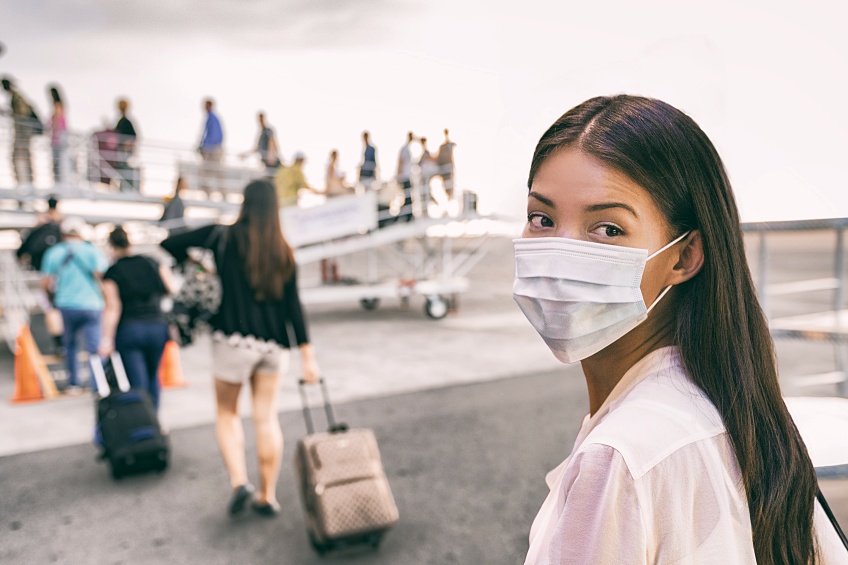The effects of the COVID-19 pandemic has impacted virtually every industry and the lives of those living in the United States. In an effort to reduce flatten the curve, reducing the spread of the virus, many areas of the country shut down non-essential businesses and encouraged people to stay home. The result was record unemployment numbers that jumped to 14.7 percent in April. Visa restrictions began on April 22, 2020, with Proclamation 10014 which suspended entry to the United States to immigrants during the economic recovery, which claimed this was a risk to the labor market.
These restrictions were originally set for a period of 60 days. On June 22, 2020, the visa restrictions were extended to at least December 31, 2020. A review of this proclamation is set to occur every 60 days, with the first one beginning gon July 24, 2020. What you need to know about these restrictions is found below.
Which Visas Are Affected By Restrictions?
The proclamation bans the entry to the United States to any alien that is seeking entry with the following nonimmigrant visas:
- H-1B or H-2B visa (includes any aliens who are accompanying or joining the visa holder)
- J visa, “to the extent the alien is participating in an intern, trainee, teacher, camp counselor, au pair, or summer work travel program, and any alien accompanying or following to join such alien”
- L visa, (includes any aliens who are accompanying or joining the visa holder)
There are some exceptions where this suspension applies to those who are:
- Not in the United States at the effective date of the proclamation
- Currently don’t hold a valid nonimmigrant visa
- Currently don’t have valid official travel documents such as a boarding foil or transportation letter at the effective date of the proclamation, or one that is issued afterward which allows travel to seek entry/admission to the United States
Additionally, there are exceptions to this proclamation for certain workers and essential employees. This is outlined in Section 2 of the proclamation which states U.S. citizens or aliens are exempt if they are:
- Considered a lawful and permanent U.S. resident
- A spouse of lawful, permanent U.S. resident or U.S. citizen
- The legal guardian of a U.S. citizen, lawful permanent resident, or parent; this individual must be under 21 years of age and unmarried
- The sibling of a lawful permanent resident or U.S. citizen; this individual must be under 21 years of age and unmarried
- The ward, foster child, or child of a lawful permanent resident or U.S. citizen or a prospective adoptee that is pursuing the IR-4 or IH-4 visa classifications to enter the United States
- Nonimmigrants of C (transit) or D(air or sea crewmember)
- Wishes to enter or transit to the United States for the purpose of an A-1, A-2, C-2, C-3, G-1, G-2, G-3, G-4, NATO-1 through NATO-4, or NATO-5 visa
- Their entry doesn’t pose a risk of introducing, transmitting or spreading the virus (CDC Director will determine this)
- The entry of the alien is important for meeting the United States law enforcement objectives; this determination is made the Secretary of Homeland Security, Security of State, or their designees that’s based on the recommendation of the Attorney General (or their designee)
- The entry of the alien is in the national interest of the United States; this determination is made by the Secretary of Homeland Security, Secretary of State, or their designees
- The United States Armed Forces members and the spouses and children of United Stated Armed Forces members
Can I Still Apply For A Visa During These Restrictions?
These restrictions apply to certain new immigrants who don’t currently hold an approved immigrant visa. It does not impact applicants that are seeking adjustment of status, nonimmigrants which include H-1B workers, visitors who are in the United States for business or pleasure, students, and more. This information could change based on the results of each 60-day review.
What If I Am Already In The US On A Visa?
The suspension currently does not apply to those who are already in the United States as long as you hold a valid nonimmigrant visa and travel documents. If you leave the United States during this time, your re-entry is not guaranteed, however. Those who qualify under one of the exceptions of this proclamation are not affected by these visa restrictions.
Restrictions On Travel Outside The US
Immigrants, nonimmigrants, and other non-U.S. citizens who have traveled to the following countries have limited travel access to the United States due to COVID-19 related proclamations:
- China
- Iran
- Europe Schengen area (includes Austria, Belgium, Czech Republic, Denmark, Estonia, Finland, France, Germany, Greece, Hungary, Iceland, Italy, Latvia, Liechtenstein, Lithuania, Luxembourg, Malta, Netherlands, Norway, Poland, Portugal, Slovakia, Slovenia, Spain, Sweden, and Switzerland)
- Ireland and the United Kingdom
- Brazil
Contact Pride Immigration For More Information About Visa Restrictions
Navigating the visa process is challenging in these times of uncertainty. Work with an immigration attorney to help you understand the current environment and ensure that the right steps are taken in the process. Contact Pride Immigration today to work with one of our experienced immigration attorneys.
Beeraj Patel, Esq.
Latest posts by Beeraj Patel, Esq. (see all)
- What to Do If Your Employer Withdraws Support During the Green Card Process - March 31, 2025
- How a Green Card Attorney Can Help with Complex Immigration Cases Involving Family Separation - March 17, 2025
- How PERM Labor Certification Works for Small Business Employers Sponsoring Foreign Workers - February 24, 2025
